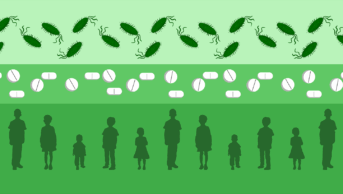
Matthew Horwood / Alamy Stock Photo
Ending the prescribing of all gluten-free (GF) foods would save the NHS more money and generate more health benefits rather than restricting prescribing of gluten-free foods to breads and mixes — the option preferred by the government — an impact assessment has found.
The Department of Health and Social Care (DHSC) assessment compared the costs and benefits of three policy scenarios. The first was a baseline scenario in which regulations around prescribing of GF foods remained unchanged and against which the other two scenarios were compared.
In the second policy scenario, in which prescribing of all GF foods was stopped and patients had to buy all GF foods privately, the annual financial saving to the NHS was estimated to be £5.3m, based solely on reduction in net ingredient cost spending and loss of prescription charge revenues. The monetised and discounted net health benefits over ten years was valued at approximately £151m.
Assuming that the savings were then reinvested into other NHS services to generate health gains, the assessment calculated that this scenario would equate to 3,800 quality-adjusted life years (QALYs).
In the third policy scenario, in which patients could still be prescribed GF breads and mixes but would have to buy other formulated GF foods privately, it was calculated that the annual financial saving to the NHS would be £0.7m, resulting in monetised and discounted net health benefits of £20m over ten years. The assessment found this to equate to 600 QALYs.
“Option three is the government’s preferred option, despite the fact that it is anticipated to save the NHS less money and generate fewer health benefits than option two,” the authors of the impact assessment wrote.
They also highlighted that, following public consultation, the government’s reason for preferring this option was to mitigate the health risks to patients with coeliac disease, the only effective treatment for which is a life-long GF diet.
According to the report, 75% of clinical commissioning groups (CCGs) in England have already introduced local guidance recommending that GPs withdraw or restrict prescribing of GF foods and there was a 39% fall in the net ingredient cost of GF foods to the NHS between 2015 and 2017.
Consequently, the estimated net benefits of either restricting or ending GF food prescribing through national policy are much lower now than when the policy was originally proposed in 2015.
The assessment also revealed variation between in CCGs’ local policies.
The DHSC’s decision to limit prescriptions of GF products followed a public consultation on GF prescribing that ran from July to October in 2017 alongside a wider consultation on limiting routine prescribing of a range of products in primary care. That consultation led to NHS England guidance for CCGs on the prescription of low-value items, such as homeopathy, herbal treatments and omega-3 fatty acid compounds.


